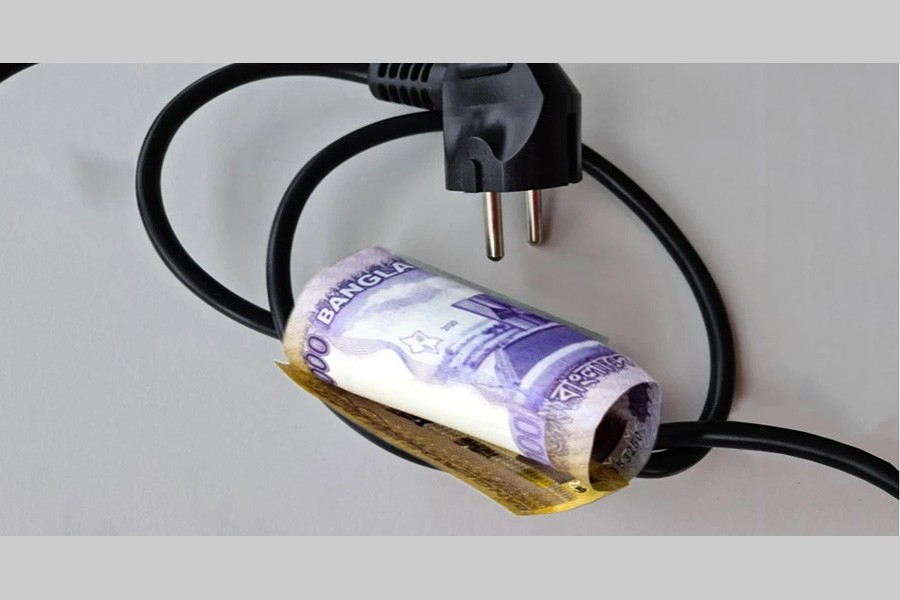Bangladesh Energy Regulatory Commission (BERC) will now consult with the government before any move towards holding a public hearing on retail power tariff hike proposals.
"We think we should first consult with the government before starting any process for public hearing on the submitted proposals", Mohammad Bazlur Rahman, member (Power) of the BERC, told UNB.
Such remarks from the BERC member came against the backdrop of the government's latest move to amend the BERC Act 2003 to create scope for the government to take arbitrary decisions on raising retail and bulk power and energy prices.
"After the proposed amendment, the BERC should not move into any conflicting situation", Bazlur Rahman said.
The cabinet on November 28 approved an amendment to the BERC Ordinance 2022 to empower the government to set fuel tariff on its own under special circumstances without waiting for the commission's public hearing and decision.
The approval came at the Cabinet meeting with Prime Minister Sheikh Hasina in the chair at the PMO, said Cabinet Secretary Khandker Anwarul Islam while briefing the media at the Secretariat.
He said the BERC can wait for up to 90 days to review and take a decision on fixing tariff rates and this is a long time. The amendment is being done so that the government can set the fuel price on an urgent basis in a situation like what prevails now.
The possibility of importing fuel and energy under private arrangement was discussed at the meeting and the relevant authorities were given direction in this regard, he said.
However, BERC Chairman Abdul Jalil, a former secretary of the government, was reluctant to make any comment before going through the gazette notification on the proposed amendment.
"Let me see the gazette notification first... Then the commission will decide on any issue relating to public hearing or tariff fixation", he told UNB.
Meanwhile, all the six state-owned power distribution bodies submitted their respective proposals on raising retail power tariff in subsequent of the bulk power tariff hike.
Sources said the six entities-BPDB, Bangladesh Rural Electrification Board (BREB), Dhaka Power Distribution Company Limited (DPDC), Dhaka Electric Supply Company Limited (Desco), Northern Electricity Supply Company PLS (Nesco), West Zone Power Distribution Company Limited (WZPDCL)-have placed almost an identical proposal to raise retail power tariff aby about 20 per cent.
They moved to submit their proposals following the BERC's decision to hike the bulk power tariff by 19.92 per cent with effect from December 1.
As per the latest statistics, the financial loss of the state-owned Bangladesh Power Development Board (BPDB), the principal organisation in power sector and also the single buyer of electricity from private sector power plants, is likely to increase by Tk 180.94 crore in one year.
According to BPDB's own latest estimates, the financial loss will cross Tk 480 billion in the 2022-23 fiscal from Tk 299.15 billion in the fiscal year 2021-22, an increase of almost 67 per cent.
Sources said the BPDB's revenue deficit has further increased due to its purchase of electricity at higher price and sale at lower price, the hike in petroleum fuel prices and also the price escalation of US dollars.
Officials said the recent 19.92 per cent hike in the bulk tariff may help the BPDB to reduce its loss by only Tk 50 billion while a huge revenue deficit will remain a big burden.
On the other hand, the bulk power tariff hike puts pressure on power distribution companies to submit their retail tariff hike proposal to the BERC to cover their own revenue gaps.
The retail power tariff was last raised in March, 2020 by BERC after holding a public hearing.
Through an announcement, the BERC had raised the power tariff on a weighted average by 5.3 per cent at retail level with effect from March 1, 2020.
As per that decision, the retail power tariff was increased from Tk 6.77 to Tk 7.13 per unit (each kilowatt-hour).
Officials said the Power Division is under tremendous pressure from the Finance Ministry to raise power tariff in bulk and retail to cover its huge financial losses.
The recent commitment of the International Monetary Fund (IMF) to provide a $4.5 billion loan has increased the pressure as the donor agency has tagged a condition to decrease subsidy in the power sector and raise power tariff to cover the loss, said a Power Division official.


